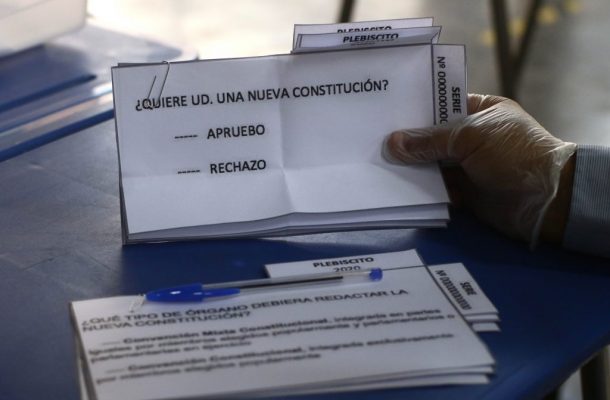Planet A
Democratic presidential candidate Joe Biden faces a careful balancing act between transitioning the US away from fossil fuels and maintaining existing jobs. Biden said in his last debate with President Donald Trump that he wants to ‘transition away from the oil industry’.
The Trump campaign seized on this in an attempt to scare voters away from Biden in states like Texas and Pennsylvania. In a US political landscape still influenced by fossil fuel lobbyists, there is still an arguably misplaced fear among voters that a shift to renewable energy would spell job losses.
However, New Scientist estimates that the green economy already employs nearly 10 times as many Americans as the fossil fuel industry does. Biden has since clarified that he does not intend to eliminate fossil fuels until 2050. A Biden administration is likely to re-join the Paris agreement as well as commit to net zero emissions by mid-century as many countries have done recently, including China, Japan and South Korea.
Democracy watch
Chileans have voted to throw out the country’s constitution—established in 1980 during the military dictatorship of Augusto Pinochet—and replace it with a new one written by a popularly elected body.
The plebiscite came after the outbreak of mass protests in October last year. These were triggered by an increase in public transportation fees, but quickly grew to include demands for free university education, retirement benefits, improved wages and an end to gender-based violence.
These wide-ranging concerns over inequality in the country culminated in the view that a new constitution would provide the best basis from which to implement reforms. The vote is being viewed as significant as it was driven solely by the grass roots frustrations of Chileans. If successful, Chile’s attempt to create a more inclusive political system could a set an example for other democratic countries confronting similar challenges.
Information operations
More than 50 former senior intelligence officials have signed a letter stating that the disclosure of emails allegedly belonging to Joe Biden’s son Hunter ‘has all the classic earmarks of a Russian information operation’. US Director of National Intelligence John Ratcliffe has denied the letter is part of a foreign interference campaign and the FBI has ‘nothing to add at this time’ but is reportedly investigating links.
Working off materials supplied by Trump lawyer , the New York Post reported the emails implicated the Democratic presidential candidate in a debunked conspiracy to oust a Ukrainian prosecutor for investigating gas company Burisma Holdings , on whose board Hunter Biden served. Multiple reporters rejected the materials after being unable to independently verify the data and Twitter and Facebook initially restricted the spread of the Post article.
A comparison can be drawn to the 2016 Democratic National Committee email leaks but in this case scepticism by major news outlets has helped stopped the spread of an unverified story. Experts have recommended that the leaks should be treated as a foreign intelligence operation until proven otherwise.
Follow the money
China has become the largest bilateral lender to Africa, having provided almost US$150 billion for infrastructure projects as part of its Belt and Road Initiative. But the burden of debt held by African countries is increasing during the Covid-19 pandemic. China has been partially complying with the Debt Service Suspension Initiative (DSSI), which is an initiative endorsed by the G20 and the World Bank introduced to assist countries in devoting their resources to responding to the pandemic.
However, Chinese money comes from varied sources, and not all lenders are required to comply with the DSSI. While Angola and Ethiopia have been able to renegotiate their debts with China, countries such as Zambia risk defaulting on their loans.
Chinese lending on the continent offers lessons to African states that in future will need to exercise greater caution when deciding who to borrow from, as well as to China, which may need to rethink its strategy to avoid having to absorb debt defaults.
Terror byte
After the murder of French teacher Samuel Paty in a terror attack near Paris, French President Emmanuel Macron and Turkish President Recep Tayyip Erdogan have exchanged verbal blows over the French government’s handling of the Islamist terrorist threat.
According to investigators, Paty’s 18-year-old killer was in contact with parents of the victim’s pupils, who complained about Paty showing caricatures of the prophet Muhammad during a lesson on freedom of speech. As Macron pledged to defend the country from Islamist extremism, he said ‘Islam is a religion in crisis’, a remark which drew immediate criticism from the French Islamic community .
Erdogan responded by personally attacking Macron, which in turn prompted a response from EU officials. The murder has also heightened fears that Islamist terrorism still poses a significant threat in Europe. Experts have argued that the root causes of extremism and radicalisation are still present and may have been amplified by the pandemic.













